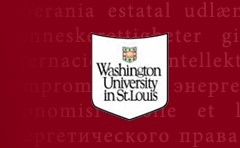Article Title
The Failure of Soft Law to Provide an Equitable Framework for Restitution of Nazi-looted Art
Publication Title
Washington University Global Studies Law Review
Abstract
It is estimated that over 20% of the art in Europe was looted by the Nazi regime during World War II. Many pieces were taken by force from Jewish art dealers, and much of the property taken during this period of Nazi spoliation was never returned. Heirs of looted art are still filing claims for restitution in various courts, but the current global patchwork of statutes of limitations and the availability of the “good faith purchaser defense” in many jurisdictions can render proceedings confusing and unjust.
This note explores the current state of the law regarding repatriation of Nazi-looted art, as well as contemporary examples that highlight the gaps and schisms in global restitution law. This note urges the signatories of non-binding international resolutions on the subject (i.e. the Washington Conference Principles and the Terezin Declaration) to create a designated administrator with the authority to make binding decisions regarding the claims of survivors and heirs who seek restitution of their looted art.
Recommended Citation
Michael J. Birnkrant,
The Failure of Soft Law to Provide an Equitable Framework for Restitution of Nazi-looted Art,
18
Wash. U. Global Stud. L. Rev.
213
(2019),
https://openscholarship.wustl.edu/law_globalstudies/vol18/iss1/8
